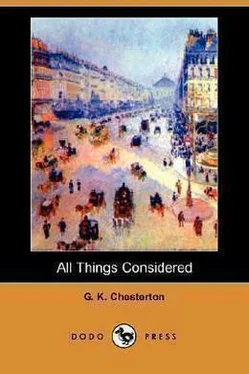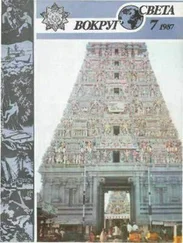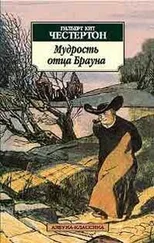Exactly in the same way the ruder or more sluggish races regard the civilisation of Christendom. If they have any respect for it, it is precisely because it does not use their own coarse and cruel expedients. According to some modern moralists whenever Zulus cut off the heads of dead Englishmen, Englishmen must cut off the heads of dead Zulus. Whenever Arabs or Egyptians constantly use the whip to their slaves, Englishmen must use the whip to their subjects. And on a similar principle (I suppose), whenever an English Admiral has to fight cannibals the English Admiral ought to eat them. However unattractive a menu consisting entirely of barbaric kings may appear to an English gentleman, he must try to sit down to it with an appetite. He must fight the Sandwich Islanders with their own weapons; and their own weapons are knives and forks. But the truth of the matter is, of course, that to do this kind of thing is to break the whole spell of our supremacy. All the mystery of the white man, all the fearful poetry of the white man, so far as it exists in the eyes of these savages, consists in the fact that we do not do such things. The Zulus point at us and say, "Observe the advent of these inexplicable demi–gods, these magicians, who do not cut off the noses of their enemies." The Soudanese say to each other, "This hardy people never flogs its servants; it is superior to the simplest and most obvious human pleasures." And the cannibals say, "The austere and terrible race, the race that denies itself even boiled missionary, is upon us: let us flee."
Whether or no these details are a little conjectural, the general proposition I suggest is the plainest common sense. The elements that make Europe upon the whole the most humanitarian civilisation are precisely the elements that make it upon the whole the strongest. For the power which makes a man able to entertain a good impulse is the same as that which enables him to make a good gun; it is imagination. It is imagination that makes a man outwit his enemy, and it is imagination that makes him spare his enemy. It is precisely because this picturing of the other man's point of view is in the main a thing in which Christians and Europeans specialise that Christians and Europeans, with all their faults, have carried to such perfection both the arts of peace and war.
They alone have invented machine–guns, and they alone have invented ambulances; they have invented ambulances (strange as it may sound) for the same reason for which they have invented machine–guns. Both involve a vivid calculation of remote events. It is precisely because the East, with all its wisdom, is cruel, that the East, with all its wisdom, is weak. And it is precisely because savages are pitiless that they are still—merely savages. If they could imagine their enemy's sufferings they could also imagine his tactics. If Zulus did not cut off the Englishman's head they might really borrow it. For if you do not understand a man you cannot crush him. And if you do understand him, very probably you will not.
When I was about seven years old I used to think that the chief modern danger was a danger of over–civilisation. I am inclined to think now that the chief modern danger is that of a slow return towards barbarism, just such a return towards barbarism as is indicated in the suggestions of barbaric retaliation of which I have just spoken. Civilisation in the best sense merely means the full authority of the human spirit over all externals. Barbarism means the worship of those externals in their crude and unconquered state. Barbarism means the worship of Nature; and in recent poetry, science, and philosophy there has been too much of the worship of Nature. Wherever men begin to talk much and with great solemnity about the forces outside man, the note of it is barbaric. When men talk much about heredity and environment they are almost barbarians. The modern men of science are many of them almost barbarians. Mr. Blatchford is in great danger of becoming a barbarian. For barbarians (especially the truly squalid and unhappy barbarians) are always talking about these scientific subjects from morning till night. That is why they remain squalid and unhappy; that is why they remain barbarians. Hottentots are always talking about heredity, like Mr. Blatchford. Sandwich Islanders are always talking about environment, like Mr. Suthers. Savages—those that are truly stunted or depraved—dedicate nearly all their tales and sayings to the subject of physical kinship, of a curse on this or that tribe, of a taint in this or that family, of the invincible law of blood, of the unavoidable evil of places. The true savage is a slave, and is always talking about what he must do; the true civilised man is a free man and is always talking about what he may do. Hence all the Zola heredity and Ibsen heredity that has been written in our time affects me as not merely evil, but as essentially ignorant and retrogressive. This sort of science is almost the only thing that can with strict propriety be called reactionary. Scientific determinism is simply the primal twilight of all mankind; and some men seem to be returning to it.
Another savage trait of our time is the disposition to talk about material substances instead of about ideas. The old civilisation talked about the sin of gluttony or excess. We talk about the Problem of Drink—as if drink could be a problem. When people have come to call the problem of human intemperance the Problem of Drink, and to talk about curing it by attacking the drink traffic, they have reached quite a dim stage of barbarism. The thing is an inverted form of fetish worship; it is no sillier to say that a bottle is a god than to say that a bottle is a devil. The people who talk about the curse of drink will probably progress down that dark hill. In a little while we shall have them calling the practice of wife–beating the Problem of Pokers; the habit of housebreaking will be called the Problem of the Skeleton–Key Trade; and for all I know they may try to prevent forgery by shutting up all the stationers' shops by Act of Parliament.
I cannot help thinking that there is some shadow of this uncivilised materialism lying at present upon a much more dignified and valuable cause. Every one is talking just now about the desirability of ingeminating peace and averting war. But even war and peace are physical states rather than moral states, and in talking about them only we have by no means got to the bottom of the matter. How, for instance, do we as a matter of fact create peace in one single community? We do not do it by vaguely telling every one to avoid fighting and to submit to anything that is done to him. We do it by definitely defining his rights and then undertaking to avenge his wrongs. We shall never have a common peace in Europe till we have a common principle in Europe. People talk of "The United States of Europe;" but they forget that it needed the very doctrinal "Declaration of Independence" to make the United States of America. You cannot agree about nothing any more than you can quarrel about nothing.
I suppose that there will be some wigs on the green in connection with the recent manifesto signed by a string of very eminent doctors on the subject of what is called "alcohol." "Alcohol" is, to judge by the sound of it, an Arabic word, like "algebra" and "Alhambra," those two other unpleasant things. The Alhambra in Spain I have never seen; I am told that it is a low and rambling building; I allude to the far more dignified erection in Leicester Square. If it is true, as I surmise, that "alcohol" is a word of the Arabs, it is interesting to realise that our general word for the essence of wine and beer and such things comes from a people which has made particular war upon them. I suppose that some aged Moslem chieftain sat one day at the opening of his tent and, brooding with black brows and cursing in his black beard over wine as the symbol of Christianity, racked his brains for some word ugly enough to express his racial and religious antipathy, and suddenly spat out the horrible word "alcohol." The fact that the doctors had to use this word for the sake of scientific clearness was really a great disadvantage to them in fairly discussing the matter. For the word really involves one of those beggings of the question which make these moral matters so difficult. It is quite a mistake to suppose that, when a man desires an alcoholic drink, he necessarily desires alcohol.
Читать дальше








